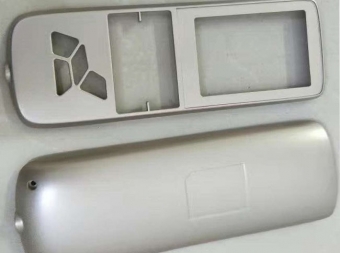


cnc router for metal factory is an advanced manufacturing process that uses computer-controlled machines to shape and cut metal materials. Utilizing computer numerical control (CNC) technology, these machines can be programmed to follow specific design instructions to produce precise and complex shapes, resulting in high-quality Hastelloy parts.
During cnc router for metal factory machining, a solid block of metal is placed on the workbench and held in place. The CAD model is then uploaded to the CNC machine and the necessary cutting tools are selected. The machine then uses its programmed instructions to move the cutting tool in multiple axes, cutting away excess material and forming the desired shape. The use of CNC technology in metal processing offers many advantages. One of the main advantages is the ability to produce complex designs with high precision. This precision also maintains tight tolerances, allowing parts and components to fit together seamlessly. Additionally, CNC machining reduces human error, thereby reducing production time and costs. Metal CNC machining can be used to produce a variety of products, including prototypes, one-off custom parts, and high-volume production. It is commonly used in industries such as Renewable energy and electronics, where precision and high-quality parts are critical.
| Place of Origin: | Xiamen, China. |
| Type: |
Broaching, DRILLING, Etching / Chemical Machining, Laser Machining, Milling, Other Machining Services, Turning, Wire EDM |
| CNC Machining or Not: | Cnc Machining |
| Available Materials: | Plastic Metal Stainless Steel Copper Brass Titanium Aluminium |
| Surface Treatment: | Sandblasting,Plating,Anodizing,Dusting As Your Order |
| OEM/ODM: | OEM ODM CNC Machining Service |
| Processing: | CNC Machining Service |
| Processing Level: | 3 4 5 6 Axis CNC TURNING MILLING |
| Item Name: | Accept Custom Logo |
| Quality Control: | 100% Inspection Before Shipment |
| Certification: | ISO 9001:2015 |
| Supply Ability: | 7894167 Piece/Pieces per Week as per customized |
| Quantity (pieces) | > 1486 |
| Lead time (days) | To be negotiated |



cnc router for metal factory FAQs Guide. we will delve into the specifics of cnc router for metal factory machining and explore its advantages, applications, and key considerations for successful implementation. Whether you are new to the field or looking to expand your knowledge, this guide will provide a comprehensive overview of this revolutionary manufacturing process. So, let's begin our journey into the world of cnc router for metal factory machining!
1.How does the rigidity of the workpiece affect the accuracy of cnc router for metal factory machining?
The rigidity of the workpiece affects the accuracy of metal CNC machining because it affects the stability of the cutting process. If the workpiece is not rigid enough, it can cause vibrations during the cutting process, which can lead to inaccuracies in the finished product. Additionally, if the workpiece is too rigid, it can cause excessive tool wear and reduce the accuracy of the machining process.
2.What are the advantages of using cnc router for metal factory over traditional machining methods?
We focus on our customers' needs and strive to meet their expectations, so we take this very seriously. 1. Increased Precision: CNC machining offers greater precision than traditional machining methods, allowing for more accurate parts with tighter tolerances. 2. Increased Speed: CNC machining can produce parts faster than traditional machining methods, allowing for faster production times. 3. Increased Versatility: CNC machining can be used to produce a wide variety of parts with complex geometries, allowing for greater design flexibility. 4. Reduced Waste: CNC machining produces less waste than traditional machining methods, resulting in lower material costs. 5. Improved Safety: CNC machining eliminates the need for manual labor, reducing the risk of injury.

3.Can cnc router for metal factory machines be integrated with robotic arms for automation?
Yes, metal CNC machines can be integrated with robotic arms for automation. This is becoming increasingly popular in the manufacturing industry as it allows for more efficient and precise production. The robotic arms can be programmed to perform specific tasks such as loading and unloading materials, as well as performing complex machining operations.
4.What are the factors to consider when choosing the right spindle speed for cnc router for metal factory machining?
1. Material: The type of material being machined will determine the optimal spindle speed. Harder materials require slower speeds, while softer materials can be machined at higher speeds. 2. Tooling: The type of tooling being used will also affect the spindle speed. For example, a high-speed steel tool will require a higher spindle speed than a carbide tool. 3. Feed Rate: The feed rate of the tool will also affect the spindle speed. A higher feed rate will require a higher spindle speed. 4. Depth of Cut: The depth of cut will also affect the spindle speed. Deeper cuts require slower speeds, while shallow cuts can be machined at higher speeds. 5. Machine Capacity: The capacity of the machine will also affect the spindle speed. Machines with higher capacities can handle higher spindle speeds.
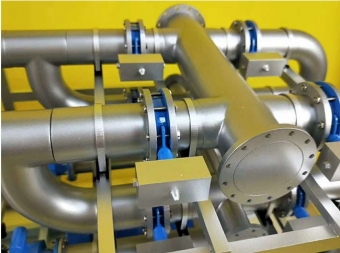
5.Can cnc router for metal factory machining be used for both internal and external parts?
We maintain a certain amount of R&D investment every year and continuously improve operational efficiency to provide better services to our cooperative customers. Yes, metal CNC machining can be used for both internal and external parts. CNC machining is a versatile process that can be used to create a wide variety of parts with complex shapes and features. It is capable of machining both internal and external features, such as holes, slots, and contours.
6.What safety precautions should be taken when changing tools in a CNC machine
Our company has many years of cnc router for metal factory experience and expertise. ? 1. Make sure the machine is powered off and the power cord is unplugged. 2. Wear protective gear such as safety glasses, gloves, and a face shield. 3. Secure the workpiece with clamps or other appropriate fixtures. 4. Disconnect any air lines or other connections to the machine. 5. Remove any loose tools or debris from the work area. 6. Make sure the tool holder is securely locked in place. 7. Use the appropriate wrench or other tool to loosen and remove the tool. 8. Inspect the tool for any damage or wear before installing it. 9. Make sure the tool is properly installed and securely tightened. 10. Reconnect any air lines or other connections to the machine. 11. Test the machine to make sure it is functioning properly.

7.What are the most commonly used cutting tools in cnc router for metal factory machining?
We have established long-term and stable partnerships with our suppliers, so we have great advantages in price and cost and quality assurance. 1. End Mills: End mills are the most commonly used cutting tools in metal CNC machining. They are used to cut slots, pockets, and contours in a variety of materials. 2. Drills: Drills are used to create holes in a variety of materials. They are available in a variety of sizes and shapes to accommodate different applications. 3. Reamers: Reamers are used to enlarge existing holes in a variety of materials. They are available in a variety of sizes and shapes to accommodate different applications. 4. Taps: Taps are used to create internal threads in a variety of materials. They are available in a variety of sizes and shapes to accommodate different applications. 5. Countersinks: Countersinks are used to create a conical shape in a variety of materials. They are available in a variety of sizes and shapes to accommodate different applications.
8.How long does it typically take to master the skills of cnc router for metal factory machining?
Our products & services cover a wide range of areas and meet the needs of different fields. The amount of time it takes to master the skills of metal CNC machining depends on the individual and the complexity of the parts being machined. Generally, it can take anywhere from a few months to a few years to become proficient in CNC machining.
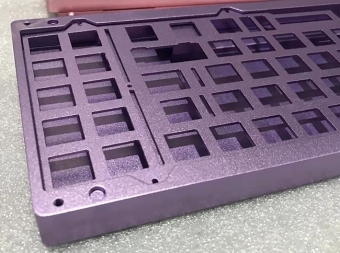
9.Is it possible to produce prototypes with cnc router for metal factory machining?
Our company has many years of cnc router for metal factory experience and expertise. Yes, it is possible to produce prototypes with metal CNC machining. CNC machining is a process that uses computer numerical control (CNC) machines to cut and shape metal parts with precision. It is a popular choice for producing prototypes because it is fast, accurate, and cost-effective.
10.What is the maintenance routine for a cnc router for metal factory machine?
We operate our cnc router for metal factory business with integrity and honesty. 1. Clean the machine regularly. 2. Check the lubrication levels and top up as needed. 3. Check for any loose bolts or screws and tighten them. 4. Inspect the cutting tools for wear and replace as needed. 5. Check the coolant levels and top up as needed. 6. Check the spindle bearings for wear and replace as needed. 7. Check the electrical connections and wiring for any signs of damage or wear. 8. Check the machine for any signs of vibration or excessive noise. 9. Check the machine for any signs of overheating. 10. Check the machine for any signs of corrosion or rust.
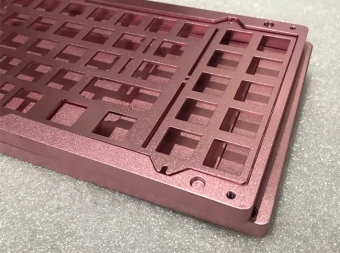
11.About cnc router for metal factory production management system
Metal CNC Production Management System is a software solution designed to help metalworking companies manage their CNC production processes. It provides a comprehensive set of tools to help streamline production, from scheduling and tracking jobs to managing inventory and quality control. The system also helps to reduce costs by providing real-time visibility into production processes and helping to identify areas of inefficiency. Additionally, the system can be used to generate reports and analyze data to help improve production processes.
12.How does the rigidity of the machine affect the outcome of cnc router for metal factory machining?
We continuously upgrade our skills and knowledge to adapt to changing cnc router for metal factory market needs. The rigidity of the machine affects the outcome of metal CNC machining in several ways. A rigid machine will be able to hold the cutting tool in a more precise position, resulting in more accurate cuts and better surface finish. A rigid machine will also be able to handle higher cutting forces, allowing for faster cutting speeds and deeper cuts. Finally, a rigid machine will be less prone to vibration, which can cause poor surface finish and inaccurate cuts.
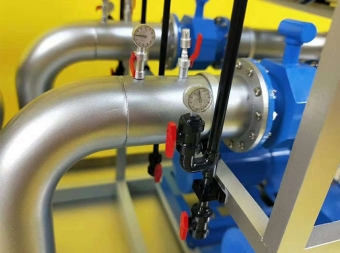
13.What is the role of pre-programming in cnc router for metal factory machining?
Pre-programming is an essential part of metal CNC machining. It is the process of creating a program that will be used to control the CNC machine. This program will contain instructions for the machine to follow, such as the type of material to be machined, the cutting speed, the feed rate, and the tool path. Pre-programming ensures that the machine will produce the desired results and that the machining process will be efficient and accurate.
14.About cnc router for metal factory warranty
Metal CNC machines typically come with a warranty that covers parts and labor for a certain period of time. The length of the warranty varies depending on the manufacturer and the type of machine. Generally, warranties range from one to three years. Some manufacturers may also offer extended warranties for an additional fee. It is important to read the warranty carefully to understand what is covered and what is not.
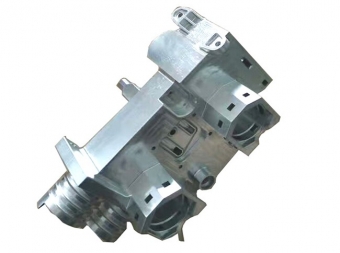
15.About cnc router for metal factory R&D capabilities
Metal CNC R&D capabilities are the ability to design and develop custom CNC machined parts and components from a variety of metals. This includes the ability to create complex shapes and features, as well as the ability to work with a variety of materials, such as aluminum, steel, brass, and titanium. CNC R&D capabilities also include the ability to create custom tooling and fixtures, as well as the ability to program and operate CNC machines. Additionally, CNC R&D capabilities include the ability to troubleshoot and repair CNC machines, as well as the ability to design and develop custom software for CNC machines.
16.How does the material selection affect the cutting speed and feed rate in cnc router for metal factory machining?
We continuously upgrade our skills and knowledge to adapt to changing cnc router for metal factory market needs. The material selection affects the cutting speed and feed rate in metal CNC machining in several ways. Harder materials require higher cutting speeds and lower feed rates, while softer materials require lower cutting speeds and higher feed rates. The type of cutting tool used also affects the cutting speed and feed rate. For example, a high-speed steel tool will require a higher cutting speed and lower feed rate than a carbide tool. Additionally, the type of cutting fluid used can also affect the cutting speed and feed rate.
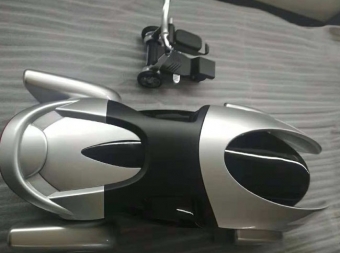
17.What are the different types of cnc router for metal factory machines available in the market?
We maintain a certain amount of R&D investment every year and continuously improve operational efficiency to provide better services to our cooperative customers. 1. Lathe CNC Machine: A lathe CNC machine is used for cutting, drilling, and turning metal parts. It is one of the most common types of CNC machines used in the manufacturing industry. 2. Milling CNC Machine: A milling CNC machine is used for cutting, drilling, and shaping metal parts. It is used for creating complex shapes and intricate details. 3. Plasma Cutting CNC Machine: A plasma cutting CNC machine is used for cutting metal parts with a high-temperature plasma arc. It is used for creating intricate shapes and details. 4. Laser Cutting CNC Machine: A laser cutting CNC machine is used for cutting metal parts with a high-powered laser beam. It is used for creating intricate shapes and details. 5. Waterjet Cutting CNC Machine: A waterjet cutting CNC machine is used for cutting metal parts with a high-pressure stream of water. It is used for creating intricate shapes and details.
18.What are the different types of cutting processes used in cnc router for metal factory machining?
We focus on innovation and continuous improvement to maintain a competitive advantage. 1. Milling: This is the most common type of CNC machining process used for cutting metal. It involves using a rotating cutting tool to remove material from the workpiece. 2. Turning: This process is used to create cylindrical parts by rotating the workpiece and cutting tool against each other. 3. Drilling: This process is used to create holes in the workpiece by using a rotating cutting tool. 4. Boring: This process is used to enlarge existing holes in the workpiece by using a rotating cutting tool. 5. Reaming: This process is used to create a smooth finish on the inside of a hole by using a rotating cutting tool. 6. Tapping: This process is used to create internal threads in a hole by using a rotating cutting tool. 7. Broaching: This process is used to create internal shapes in a workpiece by using a rotating cutting tool.
